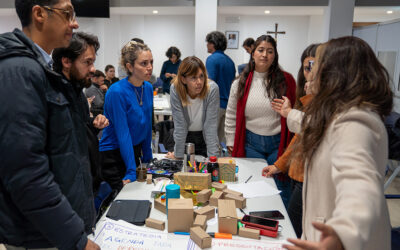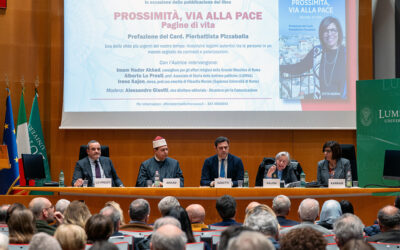Among the movements were: the Neocatechumenal Way, of Spanish origin, the St Egidio Community, the Focolare Movement and the Movement for a Better World, of Italian origin, Chemin Neuf and Emmanuel Community, of French origin, Regnum Christi, originating in Mexico, Mother’s Prayer Movement, of English origin and Schoenstatt of German origin “Thinking back to the communist era, the idea of a united world was totally inconceivable. Here, at this meeting, we have witnessed a new humanity.” “No longer were we members of different movements and ecclesial communities but one single family.” “This was a wonderful experience of Church which truly moved me.” “Each time the movements meet together, I realise that the fervour to proclaim Christ in our secularised society continues to grow.” “What I have witnessed today is for me a sign of hope for the future.” “Today I discovered how many great gifts there are in all the charisms: they all help us to understand God more; each one reveals a different beauty, a different light.” “We now have before us the whole of society, and with our unity we have to transform it.” These were just some of the spontaneous impressions shared by young people, families, people of all ages and backgrounds who had come from all parts of the Czech Republic to participate in the meeting in the sports stadium. Their comments express the atmosphere of the meeting: joyful hope and new strength to be on the frontlines in proclaiming the Gospel. This is a significant landmark in the Czech Republic where more than half the population consider themselves atheists. Its society is characterised by a general disorientation due to the impact of the materialistic Western consumer culture. These were just some of the spontaneous impressions shared by young people, families, people of all ages and backgrounds who had come from all parts of the Czech Republic to participate in the meeting in the sports stadium. Their comments express the atmosphere of the meeting: joyful hope and new strength to be on the frontlines in proclaiming the Gospel. This is a significant landmark in the Czech Republic where more than half the population consider themselves atheists. Its society is characterised by a general disorientation due to the impact of the materialistic Western consumer culture. Testimonies were shared by members of the various ecclesial movements and new communities. These expressed the power of love experienced in the encounter with God which generated profound changes in their lives. Among those who spoke was Chiara Lubich whose first visit to the Czech Republic was eagerly awaited. She illustrated with deep spiritual intensity the theme of the meeting. These witnesses were a response to the urgent need, expressed repeatedly by Pope John Paul II, of a vibrant proclamation of the Gospel in a de-Christianised world. The program of the day was very full: it included testimonies, artistic contributions and prayer. This meeting was not an isolated event. The “common witness” which the Holy Father hoped “would enliven the heart of the Church with the wealth of all the charisms” has become a style of life. So far there have been 150 such meetings in different parts of the world among ecclesial movements and new communities. Bishop Radkosvki, delegate of the Czech Bishops’ Commission for the Laity, outlined the story of the growth of these meetings which began from that “intuition of the Holy Father who with great foresight invited the movements to make known the charismatic face of the Church”. “This springtime which is about to reawaken” was announced by the Holy Father at the first historic meeting of ecclesial movements and new communities attended by hundreds of thousands of people gathered in St Peter’s Square on the vigil of Pentecost 1998. “The effusion of the Holy Spirit experienced that day has never faltered.”
Give with joy
Give with joy




0 Comments